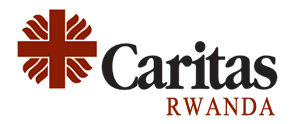To enhance the self-reliance and livelihoods of 50 Sudanese Refugee/Asylum seekers households and other minority nationalities in Mahama Refugee camp, starting from this September 2024, a four-month project is being implemented by Caritas Rwanda, with funds from MasterCard Foundation through the UNHCR Rwanda.
The project will specifically target 46 Sudanese households, as well as one household each from Ethiopia, Afghanistan, Pakistan, and Chad. The activities will be conducted following the 4 pillars of the Graduation Approach namely Social empowerment, Social protection, Financial inclusion and Livelihood promotion.
On 9th September 2024, in Kirehe District, 8 Caritas Rwanda staff members who will work on this project participated in the orientation meeting to equip them with the full information needed for the project implementation. The following day, Caritas Rwanda organized a meeting with key stakeholders including participant representatives, camp partners and the camp management team.

During the meeting, discussions centred around the presentation of project activities and the criteria for identification. All partners and participants’ representatives expressed their commitment to collaborating for the successful implementation of the project. The representatives of various minority nationalities proposed increasing the number of participants in the project. In response, the Caritas Rwanda staff explained that the project was initially designed to support Sudanese refugees due to their significant population. However, they also considered including other minority groups in the hopes that their participation would grow over time, as this project serves as a pilot initiative.

On September 11th and 12th, 2024, the Caritas Rwanda team, along with representatives of Sudanese refugees, asylum seekers, and other minority nationalities, conducted an identification process based on the agreed-upon criteria.
After the selection, the participants will benefit from various training including Saving Internal and Lending Community (SILC) methodology, financial literacy, Income Generating Activity (IGA), entrepreneurship, and business plan development. After they will create SILC groups and receive the cash grant of Frw 800,000 each to implement their IGA following their business plans.











